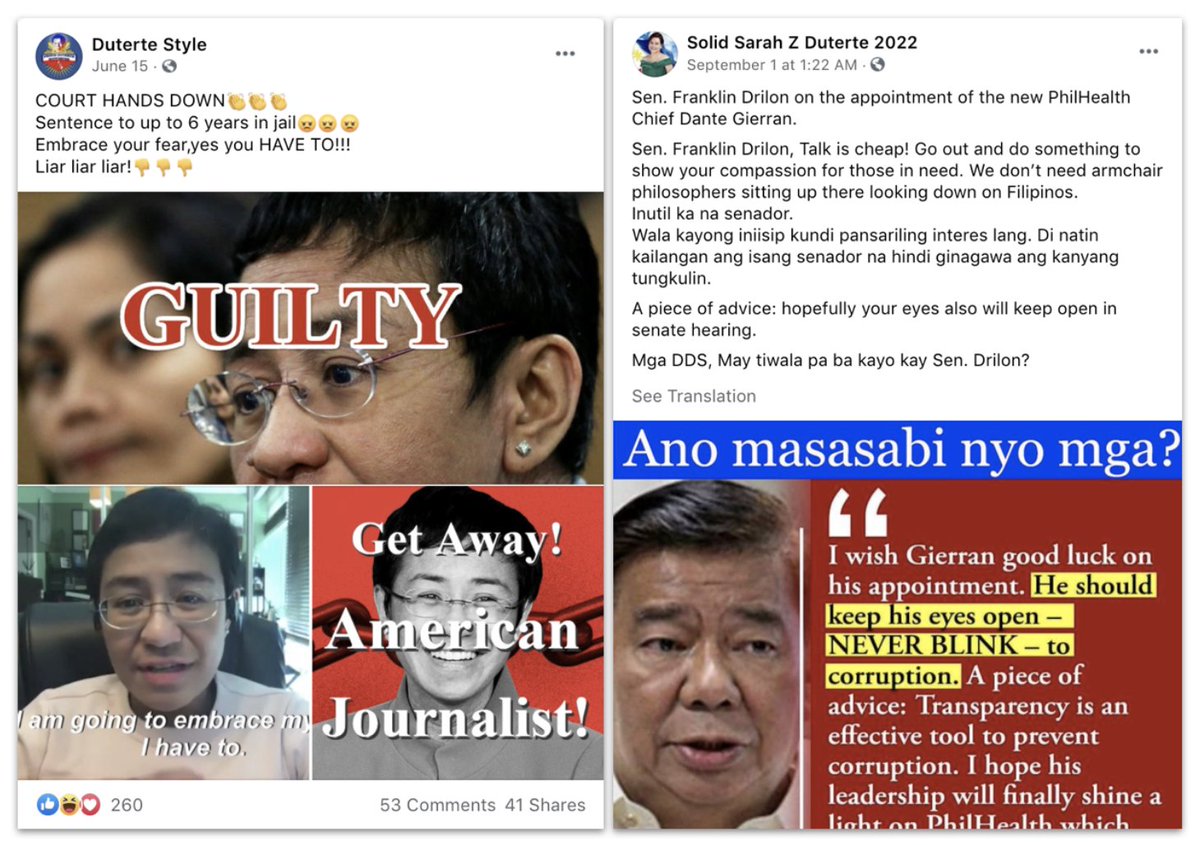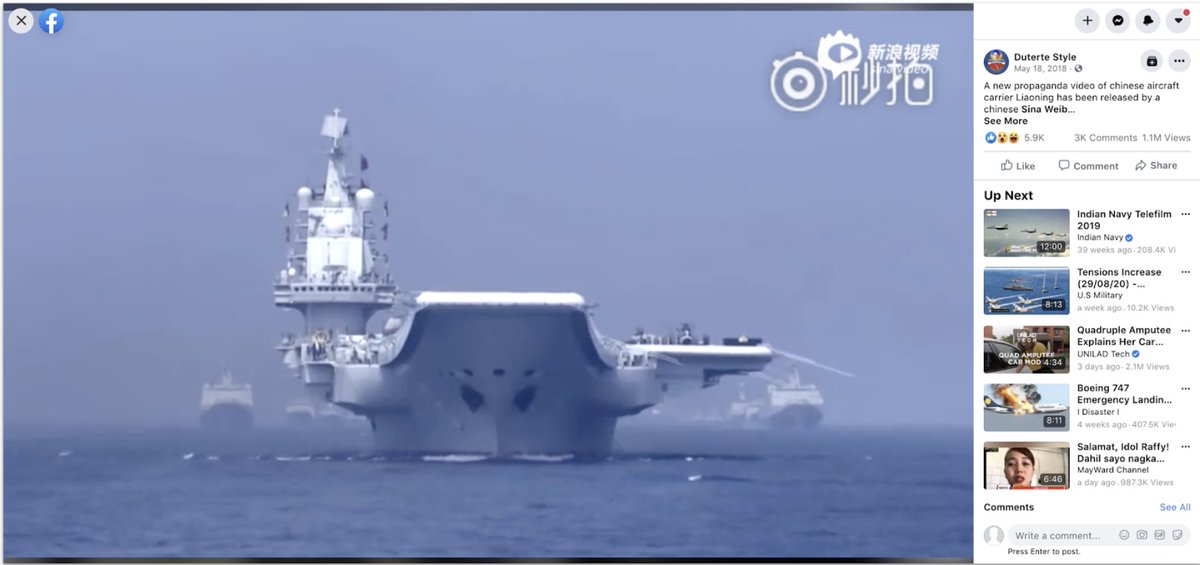BREAKING: @Facebook announced a takedown of assets run by individuals in China.
Operation Naval Gazing:
Focus on maritime security and the South China Sea;
Lot of content on the Philippines and Taiwan;
Small, apparently bipartisan volume on the US.
about.fb.com/news/2020/09/r…
Operation Naval Gazing:
Focus on maritime security and the South China Sea;
Lot of content on the Philippines and Taiwan;
Small, apparently bipartisan volume on the US.
about.fb.com/news/2020/09/r…
Here's the @Graphika_NYC report.
Overall, 155 accounts on FB, 11 pages, 9 groups, 6 Instagram accounts.
2017: mostly Taiwan
2018-19: + Philippines and South China Sea
2020: + US-centric content.
The biggest audience was in the Philippines.
graphika.com/reports/operat…
Overall, 155 accounts on FB, 11 pages, 9 groups, 6 Instagram accounts.
2017: mostly Taiwan
2018-19: + Philippines and South China Sea
2020: + US-centric content.
The biggest audience was in the Philippines.
graphika.com/reports/operat…
Operation Naval Gazing was mostly *not* about U.S. domestic politics.
But I suspect that's where the most urgent questions will be.
So...
But I suspect that's where the most urgent questions will be.
So...
Op Naval Gazing ran one group each that claimed to support Buttigieg, Trump and Biden.
Together, they amassed around 2,000 members.
The tone for each one was suited to the presumed target audience.
Together, they amassed around 2,000 members.
The tone for each one was suited to the presumed target audience.

Around those assets, there were a couple of dozen fake accounts, usually fairly rudimentary.
One each posed as strongly pro-Trump and pro-Biden. Tryinig to attract an audience, perhaps.
One each posed as strongly pro-Trump and pro-Biden. Tryinig to attract an audience, perhaps.

Most didn't even have that level of posting: some only had profile pics, some didn't even have that. Just likes, often with a Navy focus. 

The main focus was the South China Sea. That's where this started back in early 2017, with posts about Taiwan.
That focus stayed all the way through.
That focus stayed all the way through.

In 2018, it started posting about the Philippines, and more generally about maritime issues in the South China Sea.
A lot of the content was pro-Duterte or attacked the opposition and independent journalists, including @mariaressa.
A lot of the content was pro-Duterte or attacked the opposition and independent journalists, including @mariaressa.

Mixed in with that was content praising China's role and power in the region, and Duterte's attitude thereto. 

The accounts that promoted this were pretty unsubtle: same imagery, a couple of new accounts each day.
I think of this sort of account creation as Sons of Batches.
I think of this sort of account creation as Sons of Batches.

... and recent ones used GAN-generated images.
Again.
A year ago, this was a novelty. Now it feels like every operation we analyse tries this at least once.
Again.
A year ago, this was a novelty. Now it feels like every operation we analyse tries this at least once.

Periodically, the U.S. did show up in the messaging.
But it was primarily in relation to China.
Geopolitics, not politics.
But it was primarily in relation to China.
Geopolitics, not politics.

The theme that ran through all this was an interest in maritime security, especially China's purported dominance in the South China Sea.
Naval Gazing, in fact.
Naval Gazing, in fact.

Overall, this adds to our understanding of influence ops from China, though this was *not* attributed to any organisation.
The main themes match known Chinese strategic concerns: Taiwan, South China Sea, Hong Kong.
The outreach in the Philippines is novel and interesting.
The main themes match known Chinese strategic concerns: Taiwan, South China Sea, Hong Kong.
The outreach in the Philippines is novel and interesting.
The U.S. approach was also novel. It looked most like audience building, but it was taken down too early to actually *build* a significant audience.
As always with influence ops, it's important to remember:
not all operations are created equal. In this case, not all parts of the operation were created equal.
Keep to the evidence. Keep calm. But keep watch.
not all operations are created equal. In this case, not all parts of the operation were created equal.
Keep to the evidence. Keep calm. But keep watch.
• • •
Missing some Tweet in this thread? You can try to
force a refresh









